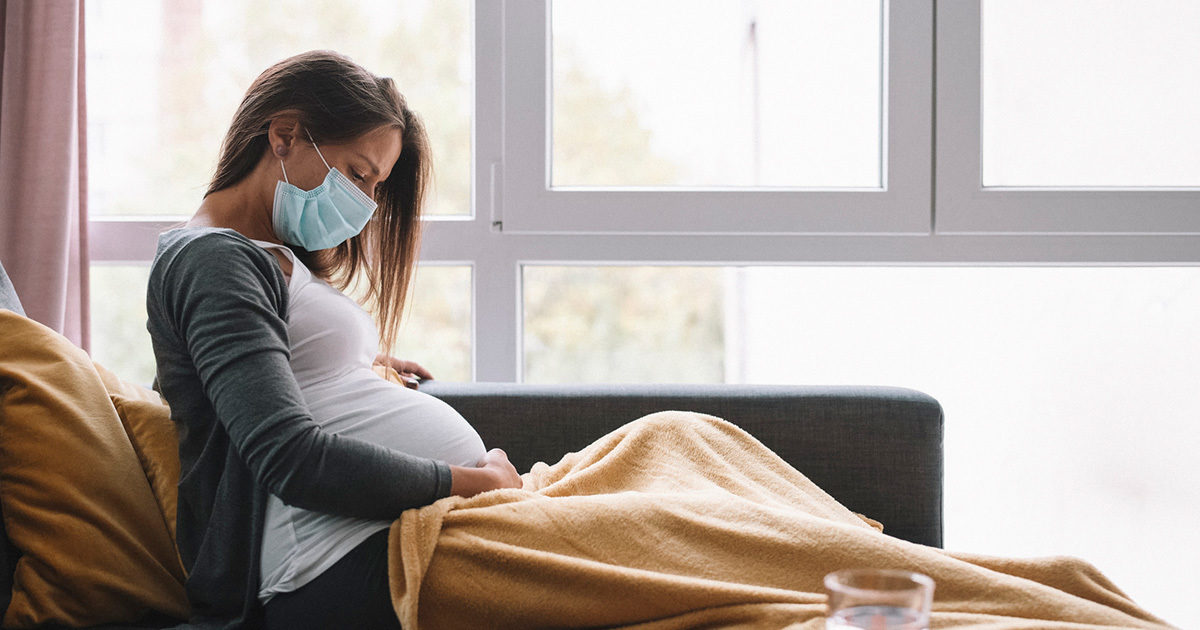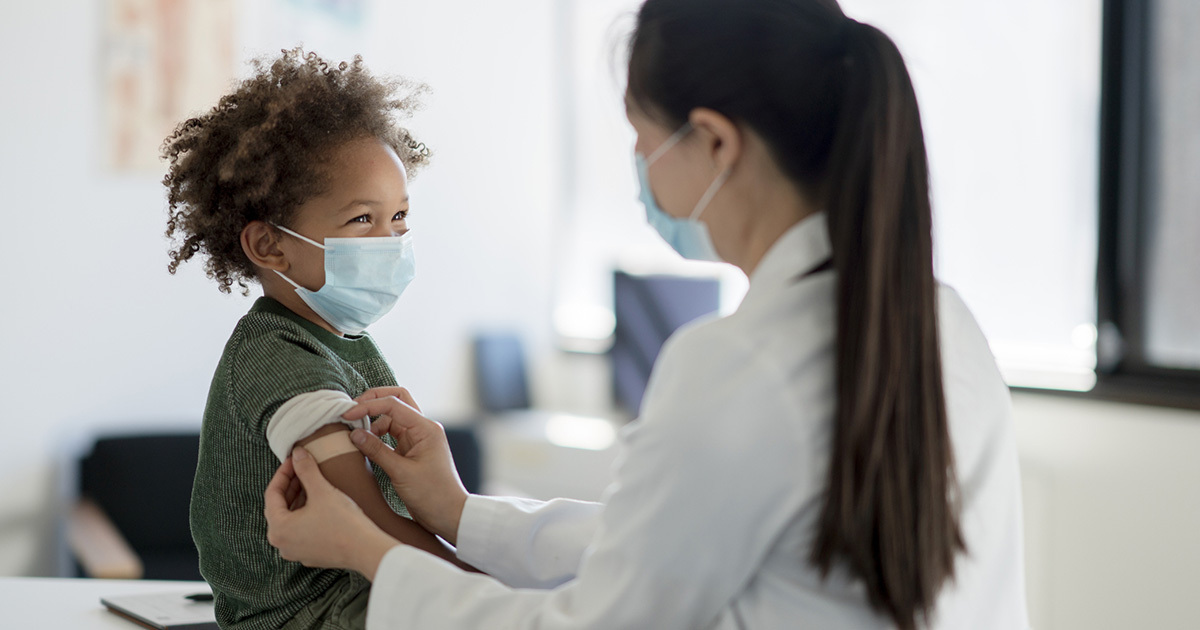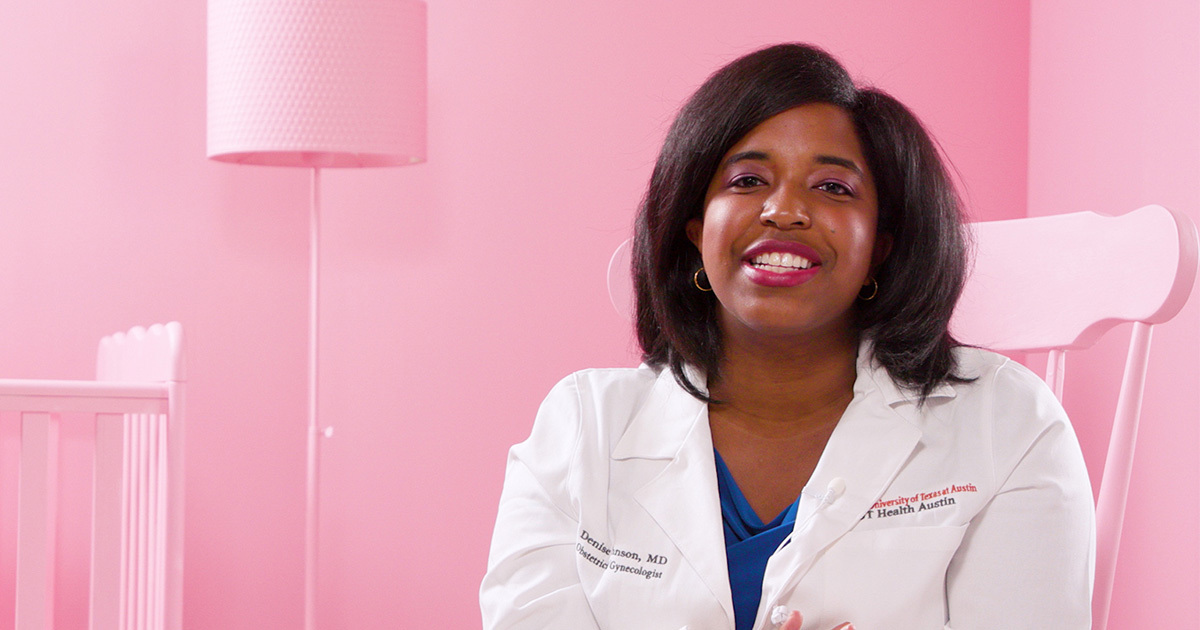Women’s Health Expert Weighs in on Monoclonal Antibody Therapy for Pregnant Patients
UT Health Austin maternal-fetal medicine specialist recommends monoclonal antibody treatment for pregnant patients who test positive for COVID-19 to lessen risk of serious infection
Written by: Lauryn Gerard

If you test positive for COVID-19 while pregnant and are experiencing mild to moderate symptoms, UT Health Austin maternal-fetal medicine specialist Alison Cahill, MD, MSCI, recommends considering monoclonal antibody infusion therapy within the first 10 days of symptom onset to help lessen the severity of the disease for both you and your unborn baby, which is in agreement with recommendations from the Centers for Disease Control and Prevention (CDC) and the American College of Obstetricians and Gynecologists.
How does monoclonal antibody therapy work?
Monoclonal antibody (mAb) therapy, also known as monoclonal antibody infusion treatment, is a way of treating COVID-19 that helps prevent hospitalizations, reduce viral loads, and lessen symptom severity. This type of therapy relies on monoclonal antibodies, which are antibodies that are similar to the ones your body would naturally make in response to infection.
Several monoclonal antibody therapies have been given emergency use authorization by the FDA for treating COVID-19, but monoclonal antibodies have also been used for other conditions, including autoimmune diseases and cancer, for decades.
The monoclonal antibodies used in this treatment are mass-produced in a laboratory and are designed to recognize the spike protein on the outer shell of the COVID-19 virus. By targeting the spike protein, these specific antibodies interfere with the virus’ ability to attach and enter human cells. These antibodies help boost the immune system until it can mount its own response.
Should expectant mothers also receive the vaccine?
While this therapy can be extremely effective, it is not a substitute for the COVID-19 vaccination.
Dr. Cahill is a maternal-fetal medicine specialist within Women’s Health, a clinical partnership between UT Health Austin and Ascension Seton. She and her colleagues from other Austin-area hospitals announced in early August that the Delta variant of COVID-19 affects pregnant women more severely than the original strain of COVID-19 and has resulted in more hospitalizations.
While the time for vaccination is more important now than ever, Dr. Cahill shares that the spread of misinformation has promoted a concern that COVID-19 vaccines may affect women’s fertility, causing some pregnant mothers to delay vaccination. There is no evidence to suggest the vaccine has any negative effect on future fertility or impacts an unborn fetus.
Learn more about the latest research surrounding the effects of COVID-19 vaccinations on pregnancy and fertility.
“The truth is that what we’re seeing is that the disease itself is doing horrible things to moms and their unborn kids…For pregnant women in the beginning stages of COVID-19, monoclonal antibodies could mean the difference between life and death,” explains Dr. Cahill.
How and when should I pursue monoclonal antibody treatment?
Whether or not they have been vaccinated, Cahill urges pregnant women who do contract COVID-19 or have been exposed to the virus to immediately reach out to their obstetric provider to discuss the possibility of receiving monoclonal antibodies.
Austin-area residents can receive monoclonal antibody treatment at Travis County’s Regional COVID-19 Therapeutic Infusion Center with a referral from their healthcare provider. The treatment is typically reserved for high-risk COVID-19 patients or patients who have had a high-risk exposure, designations a healthcare provider can determine.
“You should rely on us to do that legwork for you and figure out what your symptoms are, what your other risk factors are, and the strength with which we would recommend this therapy,” says Dr. Cahill.
With a medical referral, pregnant women and other non-hospitalized individuals who are at high-risk can receive antibody therapy at no cost from the Regional Infusion Center located at Travis County Expo Center. Health leaders still claim even with antibody treatment options, getting vaccinated is the best and most effective way to prevent a severe illness from COVID-19.
To learn more about Women’s Health or to schedule an appointment, visit here.

